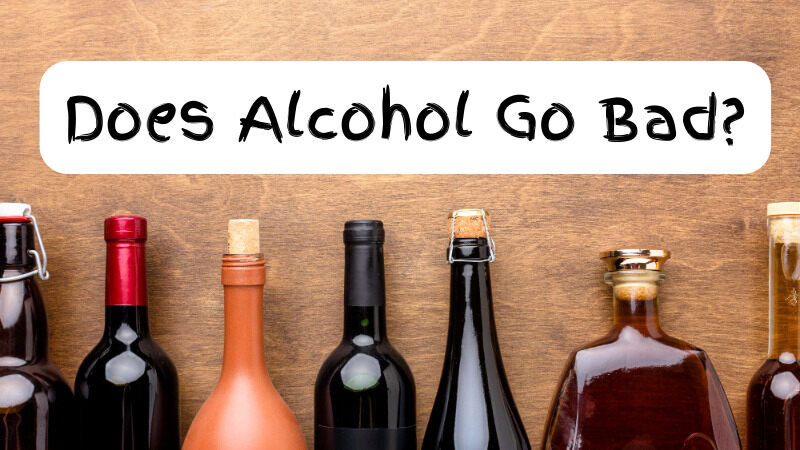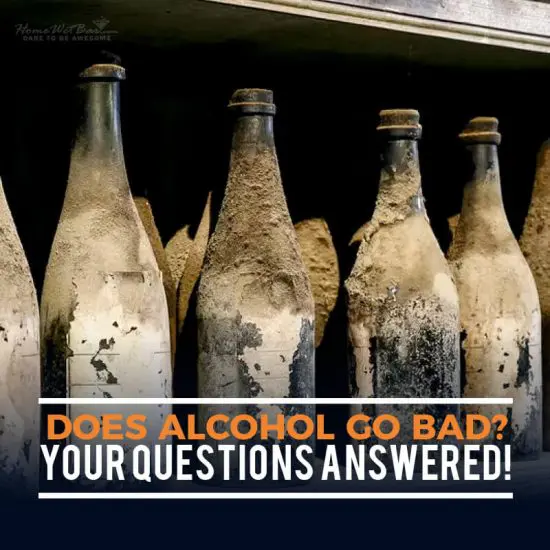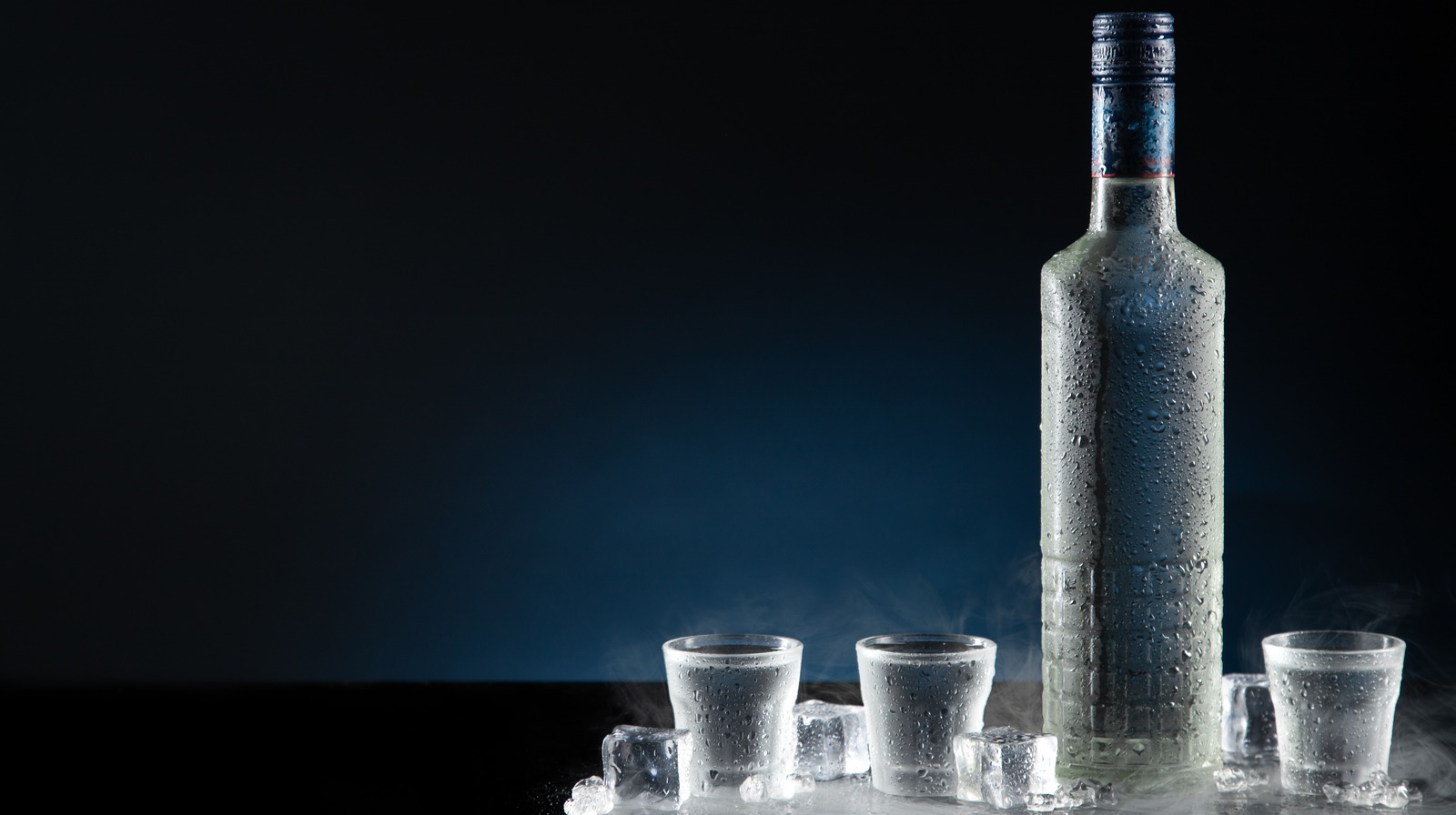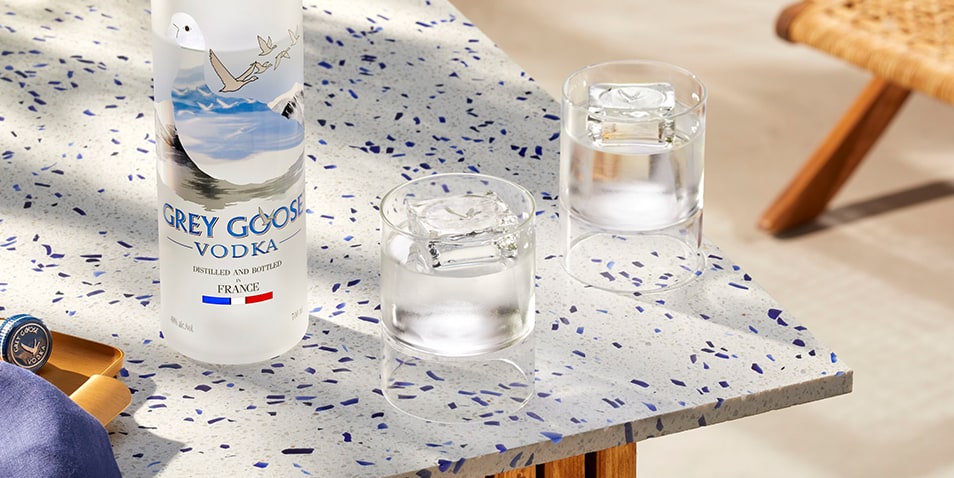Does Vodka Expire?

Vodka does not have an expiration date. Unlike other perishable food and drink items, vodka does not spoil or go bad. As long as the bottle remains unopened and stored in a cool, dark place, vodka can last indefinitely. However, it is crucial to note that the quality and taste of vodka can deteriorate over time, especially if the bottle is exposed to excessive heat or sunlight. So, while vodka may not technically expire, it is best to consume it within a reasonable time frame to enjoy its optimal flavor and potency.
Does Vodka Have An Expiration Date
Vodka does not have an expiration date. Unlike perishable food items, vodka can last indefinitely if it remains unopened and stored properly. While vodka producers may recommend consuming it within 30 to 50 years for optimal flavor and potency, the spirit itself does not expire. However, it is essential to note that the quality and taste of vodka may deteriorate over time, especially if the bottle is exposed to heat or sunlight. To enjoy the best experience, it is advised to consume vodka within a reasonable time frame after opening.
Factors That Can Impact Vodka’s Shelf Life
Several factors can affect the shelf life of vodka. One essential element is exposure to light and heat. Vodka should be stored in a cool, dark place to prevent the breakdown of its components and maintain its quality. Another factor is the presence of oxygen. Once a bottle of vodka is opened, it can oxidize, which may alter its taste and aroma. Additionally, poor storage conditions and fluctuations in temperature can accelerate the deterioration of vodka. To ensure the longevity of vodka, it is crucial to store it properly and avoid exposure to detrimental factors.
Signs Of Spoiled Vodka

Signs of spoiled vodka can include changes in color, clarity, and odor. Normally, vodka should be clear in appearance, so any discoloration could indicate contamination. It should also be transparent, so if you notice cloudiness or floating particles, it may be a sign that the vodka has spoiled. Additionally, the odor of vodka should be neutral, but if you detect an off-putting or unpleasant smell, it is a warning sign that the vodka has gone bad. It is important to be aware of these signs in order to ensure safe consumption.
Detecting Spoilage In Vodka
When it comes to detecting spoilage in vodka, there are a few key signs to look out for. First, check the color and clarity of the vodka. It should be clear and free from any discoloration or cloudiness. Next, pay attention to the odor. Vodka should have a neutral smell, so any unpleasant or off-putting aroma could indicate spoilage. Lastly, observe for any floating particles or sediment in the vodka, as this can also be a sign of spoilage. By being aware of these indicators, you can ensure that you always enjoy fresh and safe vodka.
Physical And Olfactory Indicators Of Bad Vodka
Physical and olfactory indicators can help determine if vodka has gone bad. When examining vodka, check for any changes in color or clarity. It should be clear and free from any discoloration or cloudiness. Additionally, pay attention to the odor. Vodka should have a neutral smell, so any unpleasant or off-putting aroma could indicate spoilage. If the vodka has a strong, harsh smell, it is best to avoid consuming it. These physical and olfactory indicators are crucial in detecting spoiled vodka and ensuring the safety and quality of the drink.
Proper Storage Of Vodka

Proper storage of vodka is essential for maintaining its quality and longevity. To ensure optimal storage conditions, keep your vodka bottle away from direct sunlight, as exposure to light can damage the alcohol and cause it to deteriorate. It is also important to store vodka in a cool and consistent temperature environment, ideally between 40-60 degrees Fahrenheit (4-15 degrees Celsius). Avoid fluctuating temperatures, as they can affect the flavor and overall quality of the vodka. Additionally, make sure to tightly seal the bottle after each use to prevent any air or moisture from entering, which can lead to spoilage. Following these storage recommendations will help preserve the freshness and taste of your vodka.
Best Practices For Storing Vodka
When it comes to storing vodka, following best practices can help preserve its freshness and quality. Here are some tips to keep in mind:
- Keep it away from direct sunlight: UV rays can deteriorate the alcohol and affect the taste. Store your vodka in a cool, dark place, such as a pantry or cabinet.
- Maintain a consistent temperature: Fluctuating temperatures can impact the flavor of vodka. Aim for a temperature between 40-60 degrees Fahrenheit (4-15 degrees Celsius) for optimal storage.
- Seal the bottle tightly: After each use, make sure to tightly seal the bottle to prevent air and moisture from entering. This will help prevent spoilage.
By following these best practices, you can prolong the shelf life and maintain the quality of your vodka.
Effects Of Improper Storage On Vodka Quality
Improper storage of vodka can have negative effects on its quality. When vodka is exposed to excessive heat or sunlight, it can lead to the deterioration of its flavor and overall taste. The delicate balance of the alcohol can be disrupted, resulting in a less enjoyable drinking experience. Additionally, if the bottle is not sealed tightly, air and moisture can enter, which can further degrade the vodka over time. To ensure the best quality, it is important to store vodka in a cool and dark place, away from direct sunlight and heat sources, and to always seal the bottle tightly after each use.
Can Vodka Freeze Or Go Bad In Extreme Conditions?

When it comes to extreme conditions, vodka can be affected in different ways. First, let’s talk about freezing. Vodka has a low freezing point, so it can freeze if exposed to extremely low temperatures. Freezing can cause the vodka to separate or form crystals, which can change its texture but won’t necessarily make it bad. However, repeated freezing and thawing can affect the quality and taste over time.
On the other hand, extreme heat can have a more negative impact on vodka. High temperatures can accelerate the oxidation process, leading to the deterioration of flavor and overall quality. It’s best to avoid exposing vodka to extreme heat as much as possible. Proper storage in a cool and dark place will help maintain its freshness for longer periods.
Effects Of Freezing On Vodka
Freezing vodka can have some effects on its texture and appearance. When vodka is frozen, it may separate or form crystals due to its low freezing point. However, this does not necessarily mean that the vodka has gone bad. While the texture may change, the taste of the vodka should remain the same once it thaws. It is important to note that repeated freezing and thawing can, over time, affect the quality and taste of the vodka. Therefore, it is recommended to avoid freezing and thawing vodka too frequently to maintain its optimal quality and flavor.
Impacts Of Extreme Temperatures On Vodka Quality
Extreme temperatures can have a significant impact on the quality of vodka. High temperatures can accelerate the oxidation process, leading to a deterioration in flavor and overall quality. The excessive heat can also cause the alcohol to expand and potentially leak from the bottle, further compromising its integrity. On the other hand, extremely low temperatures, such as freezing, can cause the vodka to separate or form crystals, altering its texture. Repeated exposure to extreme temperatures can ultimately affect the taste and smoothness of the vodka. Therefore, it is important to store vodka in a cool, stable environment to preserve its optimal quality.
Utilizing Vodka After Long-term Storage

After long-term storage, vodka may still be used for various purposes. While its flavor may have mellowed slightly, it can still be enjoyed in cocktails or mixed drinks. Additionally, vodka can be used as a base for homemade infusions or extracts, adding unique flavors to your culinary creations. It can also be used as a cleaning agent or to remove stubborn stains. However, it is important to note that the quality and taste of vodka may diminish over time, so it’s best to use it for non-critical applications after extended periods of storage.
Tips For Using Vodka After Extended Periods
When using vodka that has been stored for an extended period, there are a few tips to consider. Firstly, taste the vodka before using it to ensure it hasn’t gone bad. If the flavor is off or smells strange, it’s best to discard it. However, if the taste is still acceptable, it can be used in various ways. Vodka can be used as a base for cocktails or mixed drinks, although the flavor may have mellowed slightly. It can also be used to make homemade infusions or extracts, adding unique flavors to dishes and desserts. Additionally, vodka can be used as a cleaning agent or to remove stubborn stains. Just remember that the quality and taste of vodka may diminish over time, so it’s best to use it for non-critical purposes after extended periods of storage.
Safe Ways To Consume Vodka Past Its Prime
When vodka has passed its prime, it may not be ideal for straight consumption or in cocktails. However, there are still safe ways to use vodka that has gone slightly bad. One option is to use it for cooking purposes, such as adding it to sauces or marinades to enhance flavors. Another option is to use it as a cleaning agent, as vodka can be effective in disinfecting and removing stains. Just be sure to avoid using expired vodka in recipes where the flavor will be prominent, as it may negatively affect the taste of the dish.
Conclusion

In conclusion, vodka does not expire and can be stored for an impressive amount of time, whether unopened or opened. Proper storage in a cool, dark place is essential for maintaining its quality. While freezing vodka is a personal preference rather than a necessity, it can be done without affecting its safety or taste. If vodka has gone slightly bad, it can still be used for cooking purposes or as a cleaning agent. However, it is best to avoid using expired vodka in recipes where the flavor will be prominent. Remember to consult the bottle’s label or manufacturer’s website for specific instructions on shelf life.
Summary Of Vodka Expiration And Spoilage
Vodka, whether unopened or opened, does not have an expiration date and can last for years if stored properly. While the flavor and aroma may change slightly over time, it does not spoil or become unsafe to consume. Proper storage in a cool, dark place is crucial for maintaining its quality. Freezing vodka is a personal preference and will not affect its safety or taste. If vodka has gone slightly bad, it can still be used for cooking purposes or as a cleaning agent. However, it is best to avoid using expired vodka in recipes where the flavor is prominent.
Recommendations For Maintaining Vodka Freshness
To ensure the freshness and quality of your vodka, there are a few recommendations to follow. Firstly, store your vodka in a cool, dark place away from direct sunlight or heat sources to prevent flavor degradation. It is also advisable to keep the bottle tightly sealed to prevent air exposure and preserve its aroma. Additionally, avoid temperature fluctuations by keeping the vodka away from extreme temperature environments. Following these recommendations will help maintain the freshness and flavor of your vodka for longer periods.
FAQ About Can Vodka Go Bad? Understanding Liquor Spoilage
Q: Can vodka go bad?
A: Vodka, if stored properly, does not spoil or go bad in the traditional sense.
Q: What factors can affect the quality of vodka over time?
A: Exposure to sunlight, temperature fluctuations, and improper storage conditions can impact the taste and quality of vodka.
Q: How long can you keep an opened bottle of vodka?
A: An opened bottle of vodka can be stored for an extended period, indefinitely in most cases, without significant changes in taste or safety.
Q: How can you tell if vodka has gone bad?
A: Signs of bad vodka include changes in color, unusual odors, or the presence of sediment. If any of these are evident, it’s best to discard the vodka.
Q: Can freezing vodka ruin it?
A: Freezing vodka is safe and doesn’t ruin it, but it may alter the taste and texture slightly. It’s best to let it return to room temperature before serving.
Q: Are there any health risks associated with drinking expired vodka?
A: Expired vodka that has turned bad may lead to an unpleasant taste, but it’s generally safe to consume in moderate amounts.

A local, family-owned fast food and ice-cream diner in Wind Lake, Wisconsin. We might be small, but we are big on fast-friendly service with everything cooked to order. B-Lazy Diner offers chicken and fish fry buckets, served up with French fries and our famous homemade coleslaw and tarter sauce, along with a variety of wraps, seasoned burgers, homemade soups, and, of course, ice cream cones, sundaes, malts, and shakes.